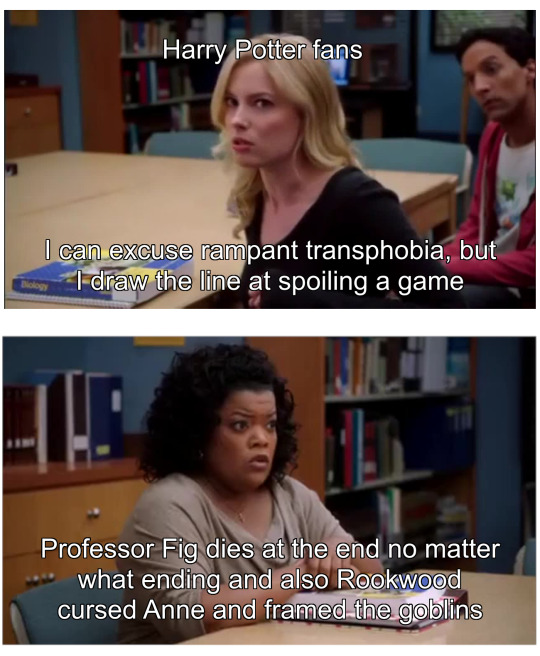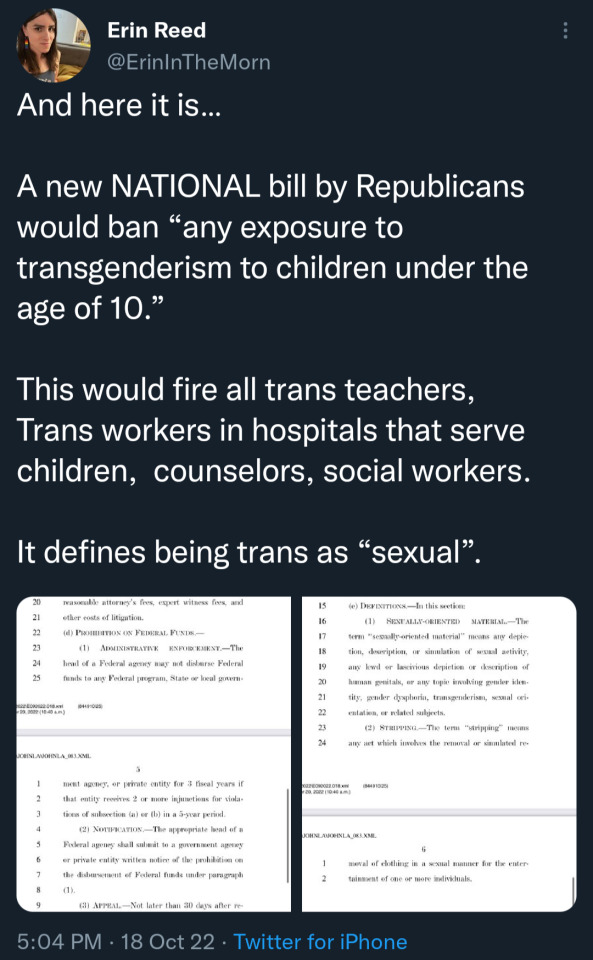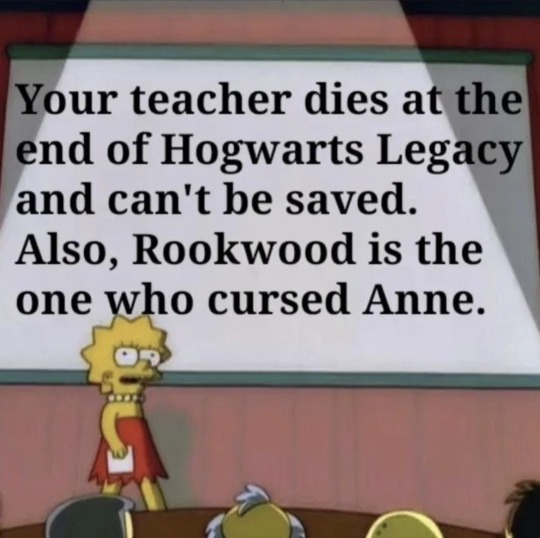Text
me: *writes fic*
me: great! time to post to ao3-
ao3 summary box: *exists*
me:
ao3 summary box:
me:
ao3 summary box:
me:
111K notes
·
View notes
Text
my writing fundamentally changed forever ten years ago when i realized you could use sentence structure to control people’s heart rates. is this still forbidden knowledge or does everyone know it now
50K notes
·
View notes
Text
some people think writers are so eloquent and good with words, but the reality is that we can sit there with our fingers on the keyboard going, “what’s the word for non-sunlight lighting? Like, fake lighting?” and for ten minutes, all our brain will supply is “unofficial”, and we know that’s not the right word, but it’s the only word we can come up with…until finally it’s like our face got smashed into a brick wall and we remember the word we want is “artificial”.
187K notes
·
View notes
Text
Editing? Oh you mean fic patching.
119K notes
·
View notes
Video
Firefighter demonstrates how to put out a kitchen fire
527K notes
·
View notes
Text

131K notes
·
View notes
Note
How do you come up with ideas? Like where do you go for inspiration for things given how annoying writers block can be?
I'd want to separate these out a bit, since they don't seem to me to be the same issue.
First (and simplest): I kinda hate using the term "writers' block", as it tends to mean too many different things to too many people, and it's too easy to be misunderstood. The term gets used for everything from being unable to start writing, to being unable to keep writing, to being unable to finish writing.
When I use it (and of course your mileage may vary), it means "hitting some spot in the writing—usually in the middle, hardly ever in any of the other places—from which you're having trouble moving forward."
After many years' practice, this usually means that I've run into a place in the narrative where the primary character involved in that section has issues going on that haven't been resolved: unanswered questions, uncertainties about what's going to happen next. (And let's be clear, as one writer to another: the uncertainties are yours, not theirs. The character is waiting for you to achieve clarity. You get clear? They get clear.)
When I hit this kind of problem, I set aside time to examine all the main characters' situations and see whether everyone knows where they're headed, or at least what they're headed toward. Normally I find that some one character has questions that haven't been answered, or some necessary conversation (with another character, or fate, or God, or you) that hasn't yet happened. Or hasn't happened to their satisfaction.
I've dealt with this problem in about twenty different ways over four decades, from the cold-blooded-analysis method of taking apart previous chapters or sections of a work, looking at the final end-state chapters or sections, and figuring out what's missing... to the Sherlock-Holmes-in-his-sitting-room method of making your character sit down in the Empty Chair and tell you what their problem is. (Which is also a mode favored by psychiatric professionals the world over, these days. Believe me, I did not give an entire novel that title accidentally.)
So: as far as I can tell, "writer's block" is almost always code for "a missing transaction (or desired transaction) in the narrative that you haven't yet identified and resolved." See above. Or that transaction may be some sort of failed communication between the outer, author-to-real-world world, and the inner, character-in-created-world world. Track it down and resolve it, and everything will be good.
Meanwhile, as for inspiration and finding ideas:
This is... not one of my problems, so I'm probably the wrong person to be asking. ...Going anywhere for inspiration? Why would I do that? It hunts me down in the street. It grabs me from behind when I'm trying to deal with the email. It gets me in a hammerlock when I'm watching somebody else's TV show.
In short: gods help me, I've been a Having An Idea person since before I started to read. I'm the one who, after being read a sleepy-time fairy tale about a prince rescuing a princess, looked at her mom and said, "Why can't it be a prince rescuing a prince?" And you see where that got me: half a million words, and (as we say on AO3) These Two Idiots. (Or: "What if magic came with a user's manual?" ...Oh gods.)
At this end of time, it would be tough for me not to have an idea or three for a novel before I've had my tea.
It goes like this:
(a) Wake up. Reach for iPad.
(b) Read news. Ugh. Naughty, naughty world. (With occasional bright spots.)
(c) ...And then wonder: "How would it be if X [thing that you just read on the news] happened in Y [entirely different universe where conditions (z) pertain]?"
(d) [make up entirely different set of conditions that don't pertain in local or even non-local reality]
...The good thing about this, of course, is that I know that ideas are cheap. Ideas are nothing. They're a dime a dozen. A dime for two or three dozen. In this regard, they observe Sturgeon's Law. (Gods rest his gentle soul.)
And more to the point: ideas are easy. It's execution (especially good, deep-delved, worthwhile execution, over tens or hundreds of thousands of words) that's hard.
Which, ninety-eight times out of a hundred, leads to:
(d) Examine idea, put it in the Scales of How Hot You Are For It, watch how the Scales weigh it and find it wanting: then throw idea out, get the hell up and have some tea.
Or, in those two other cases (twice a year, maybe); when an idea comes along that pulls the Scales down and is heavier than the Feather of Your Current Intent in the other side of the Balance—something that has some weight to it, some bite, one that resists being thrown the hell out:
(d1) Get up, have tea, write a premise filling out the idea to at least a couple of pages' length... and then start working out who the hell to market it to.
...Now this is my personal modus operandi, and I've been enacting it across various media for somewhere between fifty and sixty years and change, and there's no way I'm going to stop now. But I submit to you that it might be possible to train yourself into being this kind of What If? person, by simply spending—oh, a week, even two—asking yourself "What if...?" about everything. Every single thing you see, hear, or come in contact with. Why must this thing/this situation/this world be the way it is? Why can't it be some other way? (And then you start reasoning it out. What other way?...)
Frankly, there's no reason this shouldn't work. In fact, considering the ridiculous malleability of the human mind (and I speak with my psychiatric-nurse hat on, here) it's very likely it would work.
There's only one problem with this concept. I have no idea what to tell you if it works and you then decide you want to turn it off.
Because once you've started training your brain into this mode of questioning everything, looking under all the rocks of so-called Reality for the previously impossible impossibilities... there's no guarantee you'll ever be able to make it stop.
It's heaven for me, no mistake. But for you?
Be careful what you ask for. You might get it.
Anyway: hope this helps! :)
248 notes
·
View notes
Text
Skip Google for Research
As Google has worked to overtake the internet, its search algorithm has not just gotten worse. It has been designed to prioritize advertisers and popular pages often times excluding pages and content that better matches your search terms
As a writer in need of information for my stories, I find this unacceptable. As a proponent of availability of information so the populace can actually educate itself, it is unforgivable.
Below is a concise list of useful research sites compiled by Edward Clark over on Facebook. I was familiar with some, but not all of these.
⁂
Google is so powerful that it “hides” other search systems from us. We just don’t know the existence of most of them. Meanwhile, there are still a huge number of excellent searchers in the world who specialize in books, science, other smart information. Keep a list of sites you never heard of.
www.refseek.com - Academic Resource Search. More than a billion sources: encyclopedia, monographies, magazines.
www.worldcat.org - a search for the contents of 20 thousand worldwide libraries. Find out where lies the nearest rare book you need.
https://link.springer.com - access to more than 10 million scientific documents: books, articles, research protocols.
www.bioline.org.br is a library of scientific bioscience journals published in developing countries.
http://repec.org - volunteers from 102 countries have collected almost 4 million publications on economics and related science.
www.science.gov is an American state search engine on 2200+ scientific sites. More than 200 million articles are indexed.
www.pdfdrive.com is the largest website for free download of books in PDF format. Claiming over 225 million names.
www.base-search.net is one of the most powerful researches on academic studies texts. More than 100 million scientific documents, 70% of them are free
212K notes
·
View notes
Text
target audience of less than ten individuals
113K notes
·
View notes
Text
my dad–also a writer–came to visit, and i mentioned that the best thing to come out of the layoff is that i’m writing again. he asked what i was writing about, and i said what i always do: “oh, just fanfic,” which is code for “let’s not look at this too deeply because i’m basically just making action figures kiss in text form” and “this awkward follow-up question is exactly why i don’t call myself a writer in public.”
he said, “you have to stop doing that.”
“i know, i know,” because it’s even more embarrassing to be embarrassed about writing fanfic, considering how many posts i’ve reblogged in its defense.
but i misunderstood his original question: “fanfic is just the genre. i asked what you’re writing about.”
i did the conversational equivalent of a spinning wheel cursor for at least a minute. i started peeling back the setting and the characters, the fic challenge and the specific episode the story jumps off from, and it was one of those slow-dawning light bulb moments. “i’m writing about loneliness, and who we are in the absence of purpose.”
as, i imagine, are a lot of people right now, who probably also don’t realize they’re writing an existential diary in the guise of getting television characters to fuck.
“that’s what you’re writing. the rest is just how you get there, and how you get it out into the world. was richard iii really about richard the third? would shakespeare have gotten as many people to see it if it wasn’t a story they knew?”
so, my friends: what are you writing about?
140K notes
·
View notes
Text
“This is your daily, friendly reminder to use commas instead of periods during the dialogue of your story,” she said with a smile.
554K notes
·
View notes
Text
some people think writers are so eloquent and good with words, but the reality is that we can sit there with our fingers on the keyboard going, “what’s the word for non-sunlight lighting? Like, fake lighting?” and for ten minutes, all our brain will supply is “unofficial”, and we know that’s not the right word, but it’s the only word we can come up with…until finally it’s like our face got smashed into a brick wall and we remember the word we want is “artificial”.
187K notes
·
View notes
Text
How To Develop Your Characters
1) Reveal your character slowly. If you info-dump too much about your protagonist straight away, there is no more wonder surrounding them. By slowly unraveling details about a character, the reader can understand them more fully and see their growth happen in real-time. When your character begins to open up naturally as the story progresses, they’ll reveal things about themselves through their actions or dialogue.
2) All protagonists should have a goal. When a character sets out to complete their goal, that is when the story is born as well as their character arc. The obstacles they have to overcome and the setbacks they face develop them as the story progresses. When you give your character a goal and make it hard for them to reach it, they begin to figure things out and grow as a person.
3) Create obstacles. And then more obstacles. The more conflict that you shove in your protagonist’s face, the more active they have to be in the story. It’s by actively making choices that someone begins to transform. Give your protagonist physical obstacles to overcome but also internal ones like doubt, regret, anger, confusion, lust, etc.
4) Let them Fail. Overwhelm your character, push them to their limits, kick them when they’re low, make them feel like their heart will never heal… and then help them overcome the hardship. (Or not, if your story consists of a negative character arc). Regardless, failure is an important part of any story because no one is perfect and readers love seeing a protagonist overcome the impossible. Have your protagonist fail continuously throughout the story… big failures, little failures, half-failures… it all builds character.
5) Enhance their growth by having static characters in the story. Protagonists are typically dynamic characters which means they change throughout the story. It can be smart to contrast a dynamic character with a minor static/flat character who remains the same throughout the story. If two characters come from the same starting point but only one changes, the audience can see the growth that has really happened to them.
6) Give your character a past that they can overcome. A backstory, an origin, a past. We all start somewhere. The way we grew up undoubtedly shaped us into who we are today and it’s no different for a character. Whether your character comes from a backstory of hardships or privilege, you must know the reasons behind who they are at the start of your story. Then, you can start developing them… making them into a better or worse person.
For example, maybe your protagonist has a deathly fear of cars because of being in an accident as a child. Put them and a love interest in a car together or have them take walks by a highway late at night. Perhaps he even shows her what a car looks like under the hood and helps her to understand the safety features. This all develops your character into growing past their fear, which we understand because of their past.
7) Give your character’s flaws that are real. I don’t mean little flaws like being bad a math or extremely clumsy. While these are all aspects that are okay to give a character, your protagonist needs a more deep and intense obstacle to overcome. A werewolf who can’t control their anger and transforms sporadically. A cheerleader who shakes so badly from presentation anxiety that she risks dropping a teammate. These traits are realistic and relatable to the audience and can be overcome as the character develops, learns, and grows throughout the story.
Instagram: coffeebeanwriting
2K notes
·
View notes
Text
if i sell nudes to pay for top surgery can i call them limited edition
49K notes
·
View notes
Text
Okay fuck it if this post reaches 666k notes by the end of 2023 I'll practise basic self care
Why 666k? Because it's funny and impossible so good fucking luck
742K notes
·
View notes
Text
Americans, vote like your life depends on it because if this bill passes it literally will. They’re straight up trying to make it legal to arrest people for existing as LGBT.

35K notes
·
View notes
